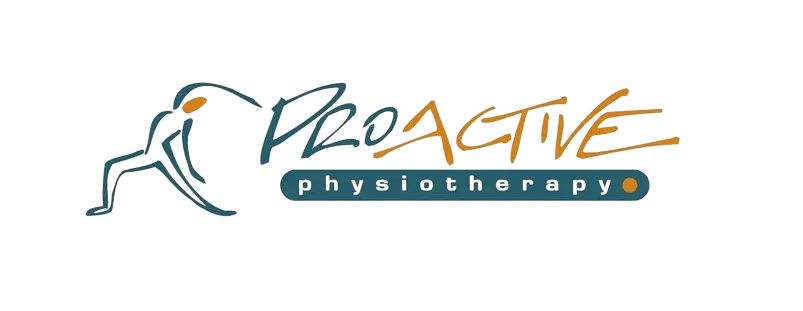Tips and Advice
Read the latest helpful insights and practical tips from our expert physiotherapists to help you move better and feel stronger
Physiotherapy for Transgender and Non-Binary People: Supporting Gender-Affirming Care
Latest research shows that the rates of young people between 15-24 who identify as transgender or non-binary are as high as 2-3%, meaning that of the 3.2 million young Australians, up to 96,000 people may identify as gender diverse. When it comes to gender affirming care, we generally think of referring to GP’s, Psychological services, endocrinology and surgeons, but did you know that Physiotherapy plays a critical role in the overall well-being of transgender and non-binary individuals, especially when it comes to supporting gender-affirming medical procedures, including surgeries, hormone therapy, and chest binding. As more people embrace their authentic gender identities, they often seek medical and therapeutic support that respects their unique needs and experiences. For many, physiotherapy becomes a key part of managing the physical changes that occur throughout their gender transition, ensuring optimal physical health and comfort during this process.
Top Surgery and Physiotherapy
Top surgery, which typically refers to breast augmentation or chest masculinization, is a common procedure for transgender men, women, non-binary, and gender non-conforming individuals seeking to align their bodies with their gender identity. Following top surgery, physiotherapy can be essential for ensuring proper healing, improving mobility, and optimizing chest and respiratory function. The recovery period after chest surgery often involves significant rest, but physiotherapy helps speed up recovery and prevent complications like shoulder stiffness, respiratory complications, muscle weakness, and limited range of motion.
A physiotherapist will often guide post-operative rehabilitation, which may include specific exercises to restore strength and flexibility, reduce pain, and improve posture. These exercises help with scar tissue management, prevent adhesion formation, and assist with the healing of soft tissues that were affected by the surgery. For individuals undergoing chest masculinization, physiotherapy can also help manage any issues related to breathing, posture, and the physical strain of chest binding, which may have been a concern prior to surgery.
Bottom Surgery and Physiotherapy
Bottom surgery, which can include procedures like phalloplasty, metoidioplasty, or genital reconstruction, can also benefit from the involvement of physiotherapy both pre- and post-operatively.
Physiotherapy in this context can focus on pelvic floor exercises, helping to strengthen muscles that may have been weakened or altered during surgery. These exercises support urinary function, improve sexual health, and aid in the overall recovery process. Additionally, physiotherapists can assist with managing any post-surgical pain, offering techniques like myofascial release or trigger point therapy to promote comfort and healing. Pelvic floor physiotherapy can also ensure that post-op cares such as dilating protocols are followed and provide reports back to surgeons and doctors regarding the patient’s progress.
Hormone Therapy and Physiotherapy
Hormone replacement therapy (HRT) is a key aspect of many transgender and non-binary people’s gender-affirming care, and it brings about significant physical changes. For those undergoing testosterone therapy, for example, they may experience changes in muscle mass, bone density, and fat distribution. These changes can impact posture, strength, and flexibility. A physiotherapist can provide tailored exercises that accommodate these shifts, ensuring that individuals maintain a healthy, functional body as they navigate the physical effects of hormones.
For individuals undergoing estrogen therapy, changes in skin elasticity, joint mobility, and body fat distribution may present new challenges. Physiotherapists can help manage any discomfort or mobility issues that arise during this process, focusing on joint health, maintaining flexibility, and minimizing any risk of injury or strain as the body undergoes these changes.
Chest Binding and Physiotherapy
Chest binding is a common practice for many transgender and non-binary individuals who wish to create a flatter chest appearance. However, long-term binding can lead to a variety of physical issues, including back, shoulder, and neck pain, as well as difficulty with breathing. Physiotherapists with a special interest in gender-affirming care can support individuals who bind their chest by addressing these issues proactively.
A physiotherapist can teach safe binding practices, help with exercises to alleviate muscle tension and discomfort, and provide advice on posture and breathing techniques to reduce the strain caused by binding. Additionally, physiotherapy can assist in preventing long-term musculoskeletal problems by guiding individuals through strengthening exercises that target the upper body and core, which can help counteract the physical stresses associated with binding.
Physiotherapy for transgender and non-binary individuals is a critical aspect of gender-affirming care, supporting physical health and healing through each phase of the transition process. Whether recovering from top or bottom surgery, adjusting to the changes brought about by hormone therapy, or managing the physical impacts of chest binding, physiotherapy can help individuals achieve better physical function, comfort, and quality of life. Working with a physiotherapist who is knowledgeable about gender-affirming care ensures that individuals can navigate their physical transition in a healthy, supportive, and inclusive environment.
Our Physiotherapist Laura has done post-graduate study in supporting LGBTQIA+ health and is passionate about ensuring that every member of our community has a knowledgeable Physiotherapist that they can trust to provide the confidential, informed and gender-affirming care they deserve, and has support to live their life to the fullest no matter where they are on the gender spectrum. Alongside LGBTQIA+ care, she has a special interest in neurodiversity care and hypermobility spectrum disorders which often present in LGBTQIA+ individuals, and she welcomes the opportunity to provide holistic Physiotherapy support.
Our team at Proactive Physio are welcoming, non-judgmental and LGBTQIA+ friendly, and waiting to help look after you.


Follow Us
The Clinic
Common conditions
© Copyright 2026 Vitala Health. All Rights Reserved.

Facebook
Instagram
LinkedIn